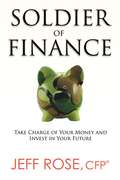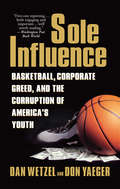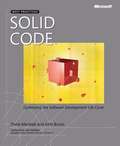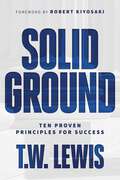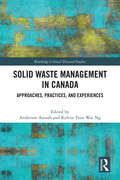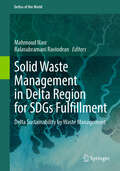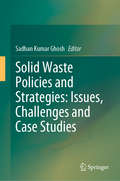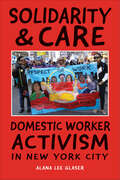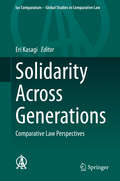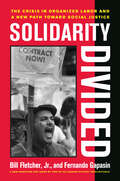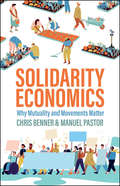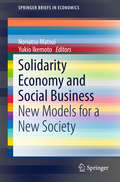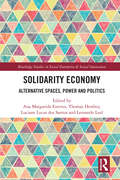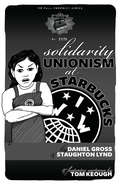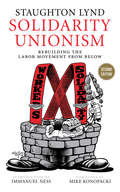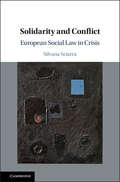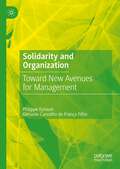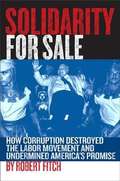- Table View
- List View
Sold to the Man With the Tin Leg
by Philip SerrellWhen Philip Serrell - now well known for his television appearances - gave up teaching to become a professional auctioneer, he thought he was embarking on a sensible and safe career . . . a quiet life in the country with no surprises. In THE AUCTIONEER'S LOT we found out how wrong he was. SOLD TO THE MAN WITH THE TIN LEG Philip describes more of his extraordinary experiences as a country auctioneer, aided and abetted by some of the most colourful characters Worcestershire has to offer. From dodgy cars to fakes in the saleroom; angry livestock, mangled silverware and tortuous - not to mention muddy - experiences in local markets and farm sales, Philip has been there, done that and got the hoofprints on his suit to prove it. And of course, there's the return¬? Philip's tin-legged boss . . .
Sold to the Man With the Tin Leg
by Philip SerrellWhen Philip Serrell - now well known for his television appearances - gave up teaching to become a professional auctioneer, he thought he was embarking on a sensible and safe career . . . a quiet life in the country with no surprises. In THE AUCTIONEER'S LOT we found out how wrong he was. SOLD TO THE MAN WITH THE TIN LEG Philip describes more of his extraordinary experiences as a country auctioneer, aided and abetted by some of the most colourful characters Worcestershire has to offer. From dodgy cars to fakes in the saleroom; angry livestock, mangled silverware and tortuous - not to mention muddy - experiences in local markets and farm sales, Philip has been there, done that and got the hoofprints on his suit to prove it. And of course, there's the return  Philip's tin-legged boss . . .
Soldier of Finance: Take Charge of Your Money and Invest in Your Future
by Jeff RoseToo much debt? Not enough savings? It's time to become a battle-ready financial warrior, prepared to tackle any money challenge.Modeled on the Soldier's Handbook, which is issued to all new U.S. Army recruits, Soldier of Finance is a no-nonsense, military-style training manual to overcoming financial obstacles and building lasting wealth. Financial planner and experienced army veteran Jeff Rose has divided this book into 14 modules, each section covering an essential element of financial success. You will learn how to:Evaluate your position and commit to changeTarget and methodically eliminate debtClean up your credit reportCreate tactical budgetsBuild emergency savingsInvest for the short and long termDetermine an affordable mortgage size, insurance needs, and more. Complete with tales from the trenches and useful tools including quizzes, debriefings, and more, Soldier of Finance is the survival guide you need to face down your finances and bring order and prosperity to your life.
Soldiers and Oil: The Political Transformation of Nigeria (Routledge Library Editions: The Oil Industry #11)
by Keith Panter-BrickSoldiers and Oil (1978) examines Nigeria under military rule from 1966 to 1978, a period of political change as well as economic – the period also saw a twenty-fold increase in Nigerian oil revenues. The oil industry became by far the greatest single source of public revenue, and the distribution of oil wealth by the central federal government fundamentally changed the economics of the federated states, created by the military government , whose financial autonomy had been so jealously guarded.
Sole Influence: Basketball, Corporate Greed, and the Corruption of America's Youth
by Don Yaeger Dan WetzelExplosive and controversial, this exposé uncovers the exploitation of college, high school, and even junior high basketball players by the billion-dollar athletic shoe companies competing for national endorsements.
Solid Code
by Donis Marshall John BrunoGet best-in-class engineering practices to help you write more-robust, bug-free code. Two Microsoft .NET development experts share real-world examples and proven methods for optimizing the software development life cycle--from avoiding costly programming pitfalls to making your development team more efficient. Managed code developers at all levels will find design, prototyping, implementation, debugging, and testing tips to boost the quality of their code--today. Optimize each stage of the development process--from design to testing--and produce higher-quality applications. Use metaprogramming to reduce code complexity, while increasing flexibility and maintainability Treat performance as a feature--and manage it throughout the development life cycle Apply best practices for application scalability Employ preventative security measures to ward off malicious attacks Practice defensive programming to catch bugs before run time Incorporate automated builds, code analysis, and testing into the daily engineering process Implement better source-control management and check-in procedures Establish a quality-driven, milestone-based project rhythm--and improve your results!
Solid Ground: Ten Proven Principles for Success
by T.W. LewisUsing time-tested principles, Solid Ground offers a blueprint for success.In Solid Ground, award-winning entrepreneur Tom Lewis shatters the myths in today&’s culture about how to achieve success. By reminding us of the time-tested principles that seem to have gotten lost—like personal character, hard work, goal setting, helping others, and faith—Solid Ground explains and celebrates the real building blocks of a successful career and life. Lewis offers both a road map and a compass for finding True North. Following these principles will put your life on solid ground—and will increase your chances for finding success and happiness. In this book, Lewis shows you how to harness the power of these principles: · The Power of Personal Character · The Value of Hard Work · The Magic of Goal Setting · The Benefits of Self-Awareness · The Goodness of Helping Others · Find Your Talent · Make Good Decisions · Take Smart Risks · Keep Your Drive Alive · Manage Your Career · Achieve Success · Discover Purpose · Create Meaning · Embrace Wisdom · Appreciate Happiness
Solid Waste Management in Canada: Approaches, Practices, and Experiences (Routledge Critical Discard Studies)
by Anderson Assuah Ng, Kelvin Tsun WaiThis edited volume takes a comprehensive look at solid waste management across jurisdictions in Canada, including provinces, territories, municipalities, and Indigenous communities. It provides the reader with an understanding of various solid waste management approaches, policies, practices, barriers, and innovations that are being pursued and developed by jurisdictions to solve their current challenges and improve current systems in place. Solid waste management remains one of the most challenging environmental concerns in the 21st century. Understanding its complexity by bridging theory and practice is essential for current and future management, and for achieving the Sustainable Development Goals. Using a multidisciplinary approach, contributors include social scientists, engineers, economists, scientists, urban planners, and practitioners in the solid waste management field, who utilize qualitative, quantitative, and mixed methods in examining solid waste management issues in Canada. Topics include solid waste management policy and governance, community- based approaches to waste management, waste management in northern, remote, rural, and Indigenous communities, landfill management and stabilization, and innovative and emergent waste management. This book is an important resource for researchers, undergraduate and graduate students, policymakers, solid waste management professionals, government officials, and members of the public interested in solid waste management.
Solid Waste Management in Delta Region for SDGs Fulfillment: Delta Sustainability by Waste Management (Deltas of the World)
by Balasubramani Ravindran Mahmoud Nasr“This book offers a comprehensive exploration of sustainable solid waste management practices in delta regions worldwide. With attention to detail, this work presents a systematic review, illuminating case studies, original research, and insightful meta-analyses tailored to address the unique challenges faced by delta environments. Home to over half a billion people, or approximately 7% of the global population, delta regions are dynamic ecological and social landscapes, despite accounting for only 1% of the world's land area. Yet, they play a pivotal role in national economies. Given the significant size and density of populations in these regions, understanding solid waste generation patterns, trends, and impacts is essential for global sustainability efforts. By focusing on deltaic regions, we aim to provide essential insights into effective policy planning and advancements in social and ecological sustainability. Explore a diverse array of topics, including the bioconversion of food waste into environmentally friendly compounds, sustainable production and disposal practices to address water quality concerns, and innovative waste management applications to combat channel clogging and flooding in delta districts. Delve into best practices for managing climate-related flood risks, addressing urban responses, and tackling environmental pollution associated with unmanaged waste disposal in delta catchments. Additionally, gain valuable insights into the regulatory framework guiding waste management practices, particularly in delta regions facing significant plastic pollution challenges. This book navigates the complexities of solid waste management in delta regions, paving the way for a more sustainable future.”
Solid Waste Policies and Strategies: Issues, Challenges and Case Studies
by Sadhan Kumar GhoshThe book focuses on the challenges faced by urban areas in the context of handling waste in an environmentally and socially acceptable manner. It also discusses effective waste management approaches, which differ according to culture, climate, and socio-economic variables, as well as institutional volume. Presenting selected, high-quality papers from IconSWM 2018, the book explores a number of waste management methods with the help of case studies.
Solid Wood: Case Studies in Mass Timber Architecture, Technology and Design
by Joseph MayoOver the past 10-15 years a renaissance in wood architecture has occurred with the development of new wood building systems and design strategies, elevating wood from a predominantly single-family residential idiom to a rival of concrete and steel construction for a variety of building types, including high rises. This new solid wood architecture offers unparalleled environmental as well as construction and aesthetic benefits, and is of growing importance for professionals and academics involved in green design. Solid Wood provides the first detailed book which allows readers to understand new mass timber/massive wood architecture. It provides: historical context in wood architecture from around the world a strong environmental rationale for the use of wood in buildings recent developments in contemporary fire safety and structural issues insights into building code challenges detailed case studies of new large-scale wood building systems on a country-by-country basis. Case studies from the UK, Norway, Sweden, Germany, Austria, Italy, Canada, the United States, New Zealand and Australia highlight design strategies, construction details and unique cultural attitudes in wood design. The case studies include the most ambitious academic, hospitality, industrial, multi-family, and wood office buildings in the world. With discussions from leading architectural, engineering, and material manufacturing firms in Europe, North America and the South Pacific, Solid Wood disrupts preconceived notions and serves as an indispensable guide to twenty-first century wood architecture and its environmental and cultural benefits.
Solidarity & Care: Domestic Worker Activism in New York City
by Alana Lee GlaserThe members of the Domestic Workers United (DWU) organization—immigrant women of color employed as nannies, caregivers, and housekeepers in New York City—formed to fight for dignity and respect and to “bring meaningful change” to their work. Alana Lee Glaser examines the process of how these domestic workers organized against precarity, isolation, and exploitation to help pass the 2010 New York State Domestic Worker Bill of Rights, the first labor law in the United States protecting in-home workers. Solidarity & Care examines the political mobilization of diverse care workers who joined together and supported one another through education, protests, lobbying, and storytelling. Domestic work activists used narrative and emotional appeals to build a coalition of religious communities, employers of domestic workers, labor union members, and politicians to first pass and then to enforce the new law. Through oral history interviews, as well as ethnographic observation during DWU meetings and protest actions, Glaser chronicles how these women fought (and continue to fight) to improve working conditions. She also illustrates how they endure racism, punitive immigration laws, on-the-job indignities, and unemployment that can result in eviction and food insecurity. The lessons from Solidarity & Care along with the DWU’s precedent-setting legislative success have applications to workers across industries. All royalties will go directly to the Domestic Workers United
Solidarity Across Generations: Comparative Law Perspectives (Ius Comparatum - Global Studies in Comparative Law #49)
by Eri KasagiThis book addresses the universal and topical question of solidarity across generations from a comparative perspective, with a particular focus on the legal issues concerning retirement pensions, the poverty in the elderly, long-term care, as well as state interventions and family support for those at risk. Drawing on insights from the interface between family law, administrative law and social law, it examines 13 countries on different continents, and also briefly covers a number of additional countries in the introduction. This book is a based on the discussions and exchanges at the 20th General Congress of the International Academy of Comparative Law, in Fukuoka, Japan.
Solidarity Divided: The Crisis in Organized Labor and a New Path Toward Social Justice
by Fernando Gapasin Bill Fletcher Jr."Solidarity Divided" is a critical examination of labor's current crisis and a plan for a new way forward into the twenty-first century. Bill Fletcher and Fernando Gapasin, two longtime union insiders, offer a remarkable mix of vivid history and probing analysis. They chart changes in U.S. manufacturing, examine the onslaught of globalization, consider the influence of the environment on labor, and provide the first broad analysis of the fallout from the 2000 and 2004 elections on the U.S. labor movement.
Solidarity Divided: The Crisis in Organized Labor and a New Path toward Social Justice
by Fernando Gapasin Bill Fletcher Jr.The U.S. trade union movement finds itself today on a global battlefield filled with landmines and littered with the bodies of various social movements and struggles. Candid, incisive, and accessible, Solidarity Divided is a critical examination of labor's current crisis and a plan for a bold new way forward into the twenty-first century. Bill Fletcher and Fernando Gapasin, two longtime union insiders whose experiences as activists of color grant them a unique vantage on the problems now facing U.S. labor, offer a remarkable mix of vivid history and probing analysis. They chart changes in U.S. manufacturing, examine the onslaught of globalization, consider the influence of the environment on labor, and provide the first broad analysis of the fallout from the 2000 and 2004 elections on the U.S. labor movement. Ultimately calling for a wide-ranging reexamination of the ideological and structural underpinnings of today's labor movement, this is essential reading for understanding how the battle for social justice can be fought and won.
Solidarity Economics: Why Mutuality and Movements Matter
by Chris Benner Manuel PastorTraditional economics is built on the assumption of self-interested individuals seeking to maximize personal gain, but that is far from the whole story. Sharing, caring, and a desire to uphold the collective good are also powerful motives. In a world wracked by inequality, social divisions, and ecological destruction, can we build an alternative economics based on cooperation? In this book Chris Benner and Manuel Pastor invite us to imagine a new sort of solidarity economics – an approach grounded in our instincts for connection and community – and in so doing, actually build a more robust and sustainable economy. They argue that our current economy is already deeply dependent on mutuality, but that the inequality and fragmentation created by the status quo undermine this mutuality and with it our economic well-being. They outline the theoretical framing, policy agenda, and social movements that we need to revive solidarity and apply it to whole societies. Solidarity Economics is an essential read for anyone who longs for a fairer economy that can generate prosperity and preserve the planet.
Solidarity Economy and Social Business
by Noriatsu Matsui Yukio IkemotoThis book presents theoretical examinations of why and how connecting people yields different results from those of the market mechanism alone. With an ever-greater disparity between the world's rich and poor, actions have been taken to remove the imperfections and remedy malfunctions of the market mechanism. An underlying theme of these activities is to connect people and make them directly visible to one another; thus the integrating concept of the "solidarity economy" emerges. This volume analyzes diverse examples and practices of solidarity economy. Adam Smith emphasized the importance of "sympathy" among people and the role of the "impartial spectator" in order to control otherwise reckless markets. These major concepts form the basis of a solidarity economy. The examples and practices in this book are based on this framework. The first is the idea of social business, promoted by Prof. M. Yunus of the Grameen Bank. Although the group of five members in the Grameen Bank organization is considered a system of mutual surveillance by some economists, it is not a system based on distrust but a mechanism for mutual help and encouragement. Also examined in this book is organic agriculture, which adheres to the necessity of face-to-face relationships. It pursues environmental concerns and food safety by bringing together consumers and producers in local areas and by sharing knowledge. When consumers and producers are widely separated, a system of certification assures consumers that no chemical pesticides and fertilizers are used. Connecting consumers and producers through certification systems can be seen as part of fair trade mechanisms. These mechanisms are applied in certified coffee programs, for instance, to reduce poverty, to protect the environment, and to safeguard human rights. This book proposes that all these seemingly different types of activities can be understood as part of the solidarity economy. With this unifying theme, the book will be useful for both theoretical investigations and practical applications.
Solidarity Economy: Alternative Spaces, Power and Politics (Routledge Studies in Social Enterprise & Social Innovation)
by Thomas Henfrey Leonardo Leal Ana Margarida Esteves Luciane Lucas dos SantosSolidarity economy-based alternative spaces result from an interface among structural factors, institutional regimes and forms of collective action that mobilise narratives of change, collective identities and non-capitalist economic practices. This book analyses how solidarity economy initiatives develop alternative spatialities as counterpower to mainstream economy. Based on case studies in Europe, Latin America, Africa and Asia, it elaborates on how different scales of solidarity economy-based alternative spaces result from an interface among structural factors, institutional regimes and forms of collective action that mobilise narratives of change, collective identities and non-capitalist economic practices.
Solidarity Unionism at Starbucks (PM Pamphlet)
by Staughton Lynd Daniel GrossLegendary legal scholar Staughton Lynd teams up with influential labor organizer Daniel Gross in this exposition on solidarity unionism, the do-it-yourself workplace organizing system that is rapidly gaining prominence around the country and around the world. Lynd and Gross make the audacious argument that workers themselves on the shop floor, not outside union officials, are the real hope for labor's future. Utilizing the principles of solidarity unionism, any group of co-workers, like the workers at Starbucks, can start building an organization to win an independent voice at work without waiting for a traditional trade union to come and "organize" them. Indeed, in a leaked recording of a conference call, the nation's most prominent union-busting lobbyist coined a term, "the Starbucks problem," as a warning to business executives about the risk of working people organizing themselves and taking direct action to improve issues at work. Combining history and theory with the groundbreaking practice of the model by Starbucks workers, Lynd and Gross make a compelling case for solidarity unionism as an effective, resilient, and deeply democratic approach to winning a voice on the job and in society.
Solidarity Unionism: Rebuilding the Labor Movement from Below
by Staughton Lynd Immanuel NessCritical reading for all who care about the future of labor, Solidarity Unionism draws deeply on Staughton Lynd's experiences as a labor lawyer and activist in Youngstown, Ohio, and on his profound understanding of the history of the Congress of Industrial Organizations (CIO). The book helps us begin to put not only movement, but also vision, back into the labor movement. There is a blossoming of rank-and-file worker organizations throughout the world that are countering rapacious capitalists and labor leaders who think they know more about work and struggle than their own members. To secure the gains of solidarity unions, Lynd has proposed parallel bodies of workers who share the principles of rank-and-file solidarity and can coordinate the activities of local workers' assemblies. Detailed and inspiring examples include experiments in workers' self-organization across industries in steel-producing Youngstown, as well as horizontal networks of solidarity formed in a variety of U.S. cities and successful direct actions overseas. This book is not a prescription but reveals the lived experience of working people continuously taking risks for the common good.
Solidarity and Conflict: European Social Law In Crisis
by Silvana SciarraThe ongoing austerity crisis is being felt in all sectors of EU law, but has had a particularly severe impact on labour law. <P><P>Silvana Sciarra, a leading judge and scholar of EU employment law, considers how solidarity regimes have been shaken by the crisis. She brings together existing European policies in social and employment law, to enhance synergies and developments in a post-crisis discourse. She looks at reactions of national constitutional courts to austerity measures and of international organizations in re-establishing respect of fundamental workers' rights. <P>Criticizing soft law approaches in employment policies, she favours recourse to binding measures connected with selective financial incentives through European funds. She highlights developments in European sector social dialogue and new horizons of transnational collective bargaining in large multinationals. Taking a positive, practical approach, Sciarra shows how social policies can enhance solidarity and social cohesion, through European financial support. <P>Provides a critical and constructive point of view on European social law developments.<P> Combines information on legal sources with proposals for better policy making.<P> Discusses highly topical issues around austerity and workers' rights.
Solidarity and Fragmentation: Working People and Class Consciousness in Detroit, 1875-1900 (Working Class in American History)
by Richard Jules OestreicherHow did the interplay between class and ethnicity play out within the working class during the Gilded Age? Richard Jules Oestreicher illuminates the immigrant communities, radical politics, worker-employer relationships, and the multiple meanings of workers' affiliations in Detroit at the end of the nineteenth century.
Solidarity and Organization: Toward New Avenues for Management
by Philippe Eynaud Genauto Carvalho de França FilhoSolidarity is an ‘unthought’ in the fields of organizational theory and management sciences. However, it is an increasingly important feature in the management of organizations. The contemporary world suffers from a double unsustainability: the abusive exploitation of natural resources endangers the balance of the climate and biodiversity, while growing inequalities condemn our ability to maintain a balanced society. These unsustainabilities are mutually reinforcing and call for the affirmation of a double solidarity, which unites humans among themselves, and links humans and nonhumans. Such an effort cannot be decreed. It must be organized.Based on numerous grassroots initiatives and citizens’ experimentations that are being invented every day around the world and on a historical and anthropological approach, this book explores different ways of combining solidarity and organization. Solidarity-based management, governance of the commons, and Buen Vivir approaches are some of the perspectives analyzed in the context of a North-South dialogue in order to formulate the conceptual framework and practical steps of a social and environmental transition. It offers both theoretical background and living examples to students, professors and researchers to better understand and better teach new avenues for management.
Solidarity for Sale: How Corruption Destroyed the Labor Movement and Undermined America's Promise
by Robert FitchThis book is a fascinating, definitive history and analysis of American labor union corruption--and an urgent call for social justice.
Solidarity in Europe: Citizens' Responses In Times Of Crisis (Palgrave Studies In European Political Sociology Series)
by Christian Lahusen Maria T. GrassoThis open access volume provides evidence-based knowledge on European solidarity and citizen responses in times of crisis. Does the crisis of European integration translate into a crisis of European solidarity, and if yes, what are the manifestations at the level of individual citizens? How strongly is solidarity rooted at the individual level, both in terms of attitudes and practices? And which driving factors and mechanisms contribute to the reproduction and/or corrosion of solidarity in times of crisis? Using findings from the EU Horizon 2020 funded research project “European paths to transnational solidarity at times of crisis: Conditions, forms, role-models and policy responses” (TransSOL), the books addresses these questions and provides cross-national comparisons of eight European countries – Denmark, France, Germany, Greece, Italy, Poland, Switzerland, and the UK. It will appeal to students, scholars and policymakers interested in the Eurocrisis, politics and sociology.

